Rohingya refugees now being housed in Thailand's shelters will be among those immediately affected by what Phil Robertson describes as a ''knee-jerk policy.''
Staff of the Ministry of Social Development and Human Security were told at a conference in Bangkok this week to immediately clear boys aged 12 and above from all of Thailand's 77 family shelters.
Rohingya families, held in custody from January, are among those affected, with families who will be forced to separate.
One frustrated official said: ''We have been told that the boys 12 years and over must be taken out of the shelters immediately, but we have not been told where they can go.''
The sudden change in policy comes as the official reaction to a shocking case at a shelter in Chonburi in which a four-year-old Thai girl was repeatedly sexually assaulted by a group of young Thai boys.
Mr Robertson, Bangkok-based Deputy Director of the Asia Division of Human Rights Watch, said today: ''Knee-jerk policies like this one are not in the tradition of quality social work and care that Thailand's government shelters have traditionally maintained.
''While Thailand's intent to protect children is commendable, when it comes to the Rohingya in shelters the Thai government is going about it in all the wrong way and contravening their international human rights obligations in the process.''
The precise total of Rohingya teens affected is not known but at least six boys aged 12 and over were due to be expelled from the family shelter in Phang Nga, north of Phuket, this weekend.
''Separating 12 to 17 year old boys and girls from their parents clearly goes against article 9 of the UN Convention of the Rights of the Child which states that a child 'shall not be separated from his or her parents against their will' unless such separation is in the 'best interests of the child' and that decision is taken subject to a judicial review,'' Mr Robertson said.
''In implementing this policy, Thailand has complied with none of these provisions - they are separating children to send them to who knows where, without the consent of the children or their parents, and without any clear determination that any of these actions are in the best interests of the child.
''Thai officials are evidently over-reacting to one incident at a shelter in Chonburi that involved the abuse of a Thai child, and coming with a blanket policy that is neither well thought out or planned.''
About 1800 Rohingya are being held in Thailand while the government considers their status and future. An initial six-month deadline for a decision has now been extended to one year.
Adult male Rohingya are being held in crowded conditions in Immigration detention centres and police cells all over Thailand. Women and children are being kept at more comfortable family shelters.
In recent weeks, mass protests, riots and escapes with help from human traffickers have marred Thailand's care of the Rohingya. Lack of skilled translators has made communications difficult and in some cases, impossible.
The frustrated would-be refugees, fleeing ethnic cleansing in Burma (Myanmar), had hoped to find sanctuary within days in Malaysia.
''Thailand should put this policy on hold, get some honest Rohingya translators who are not brokers or people smugglers who can talk to the women and children in the shelters and find out what they want, and devise a child protection policy for Rohingya children that fits with their needs and truly is in their best interests,'' Mr Robertson said.
Twelve-year-old Rohingya boys are clearly too young to be kept with the menfolk in crowded Immigration centres and police cells. Officials at the family shelters say there is no alternative accommodation.
The same issue will arise with cases of domestic violence involving teenage Thai boys, they say.
Article 9
1. States Parties shall ensure that a child shall not be separated from his or her parents against their will, except when competent authorities subject to judicial review determine, in accordance with applicable law and procedures, that such separation is necessary for the best interests of the child. Such determination may be necessary in a particular case such as one involving abuse or neglect of the child by the parents, or one where the parents are living separately and a decision must be made as to the child's place of residence.

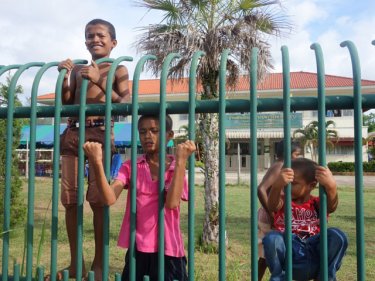

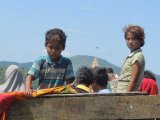
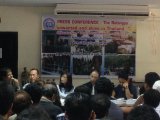
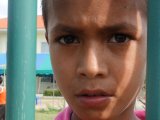
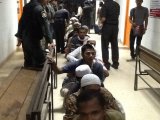
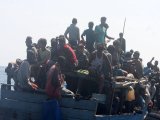
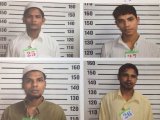
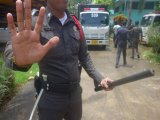
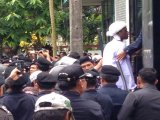


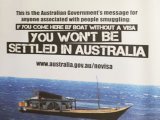
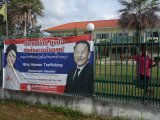

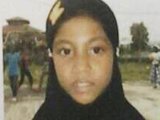

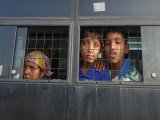
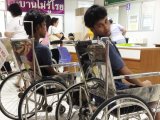
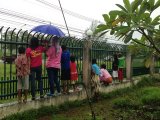



Enslaved fishing boats is where they can go.
Posted by mediawatcher on September 7, 2013 12:20